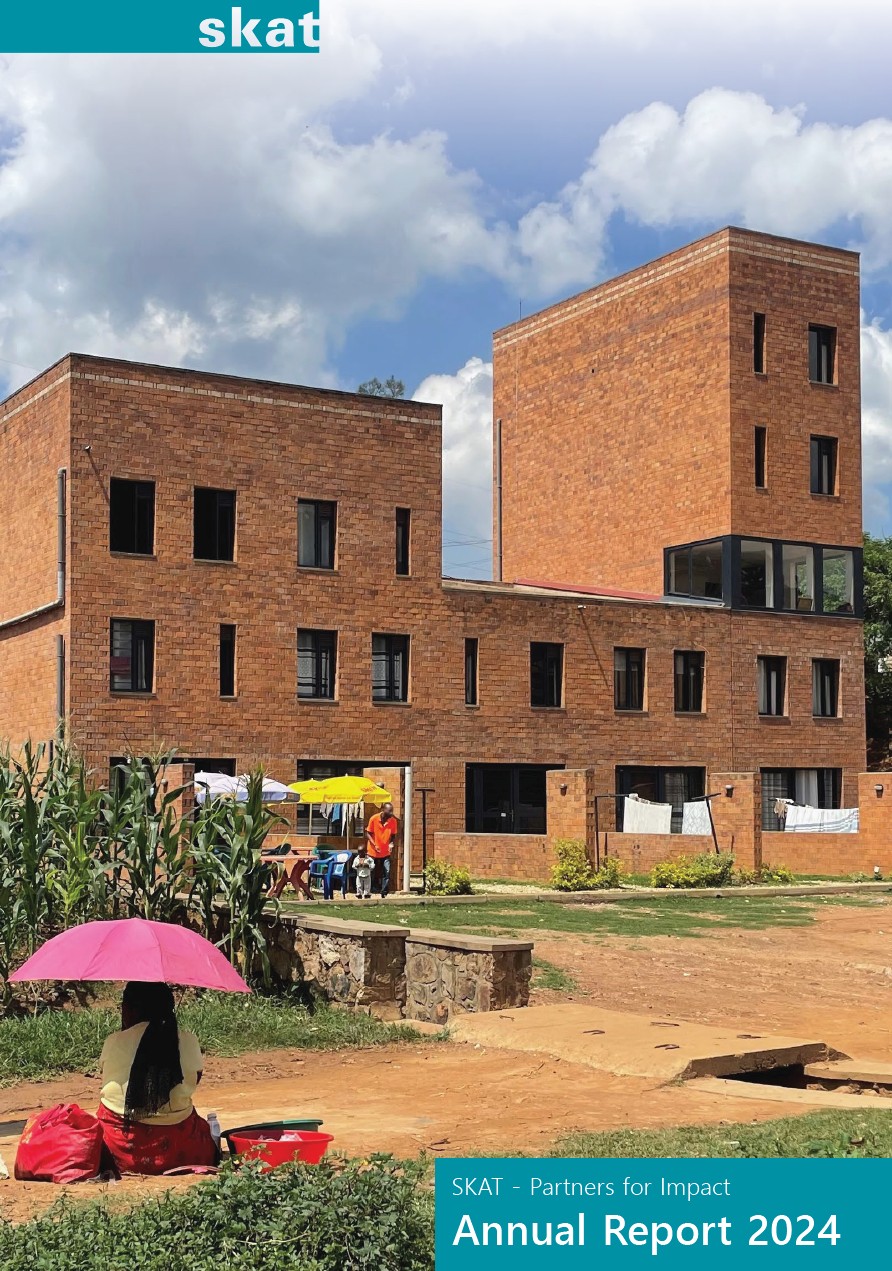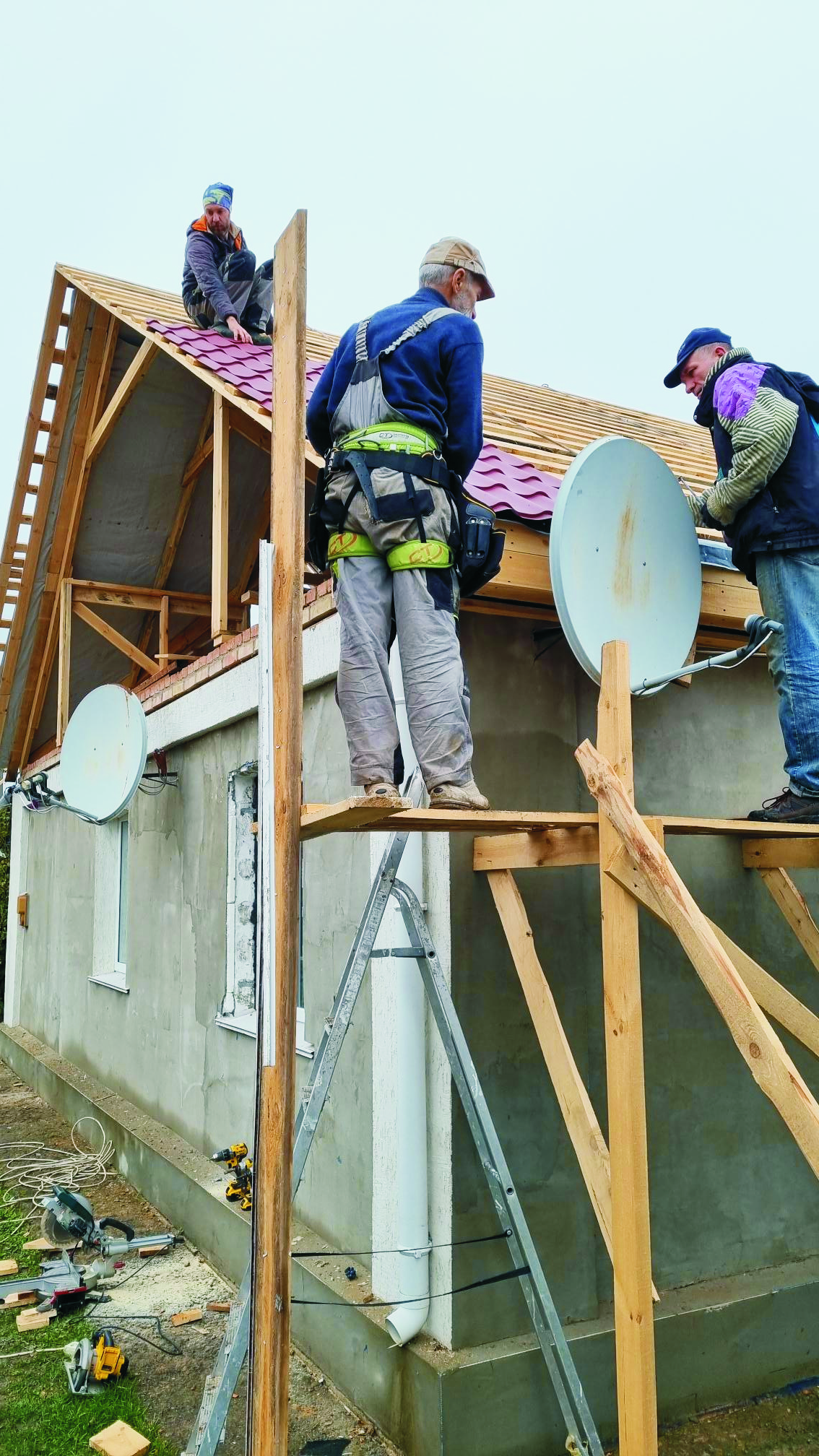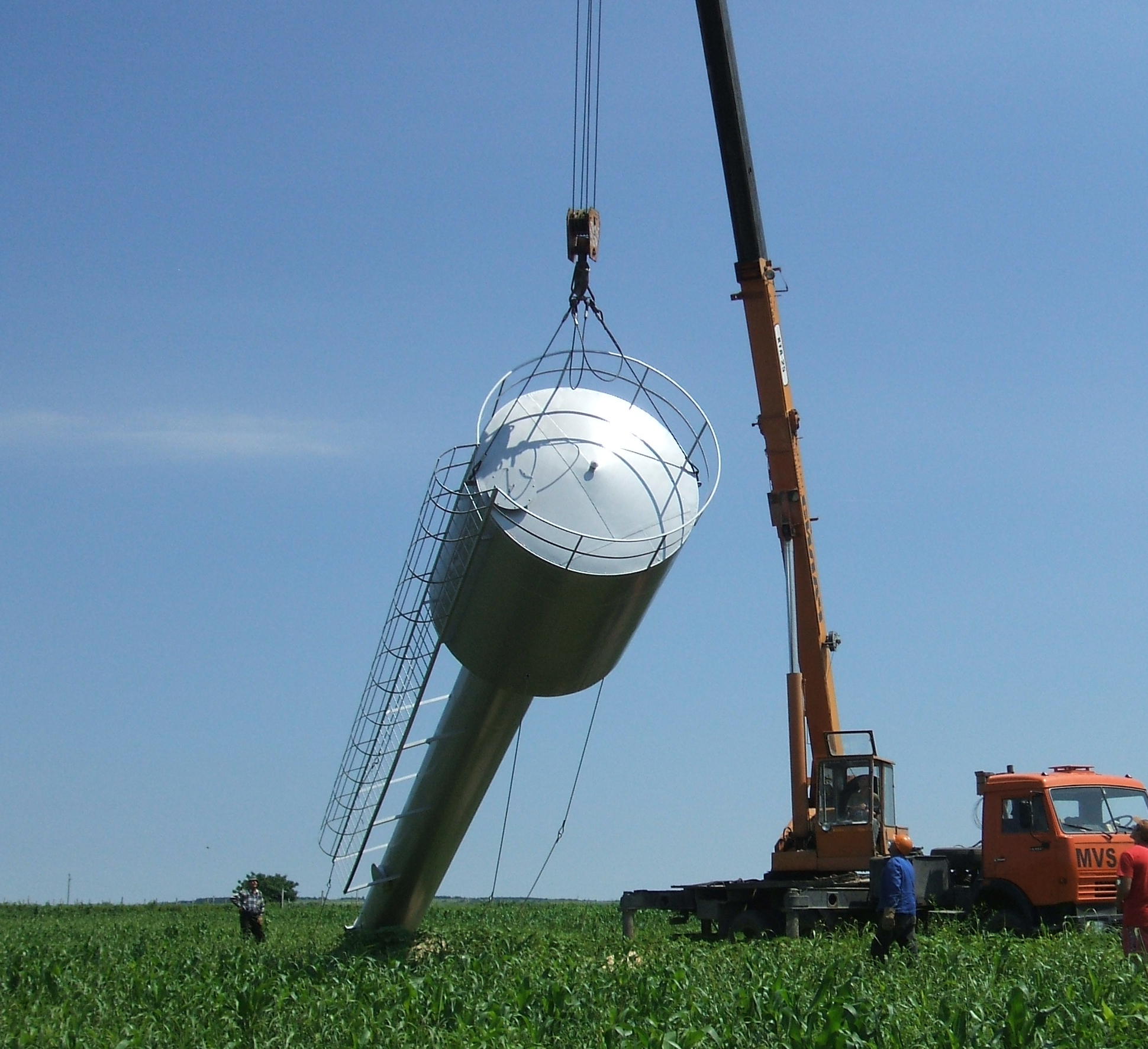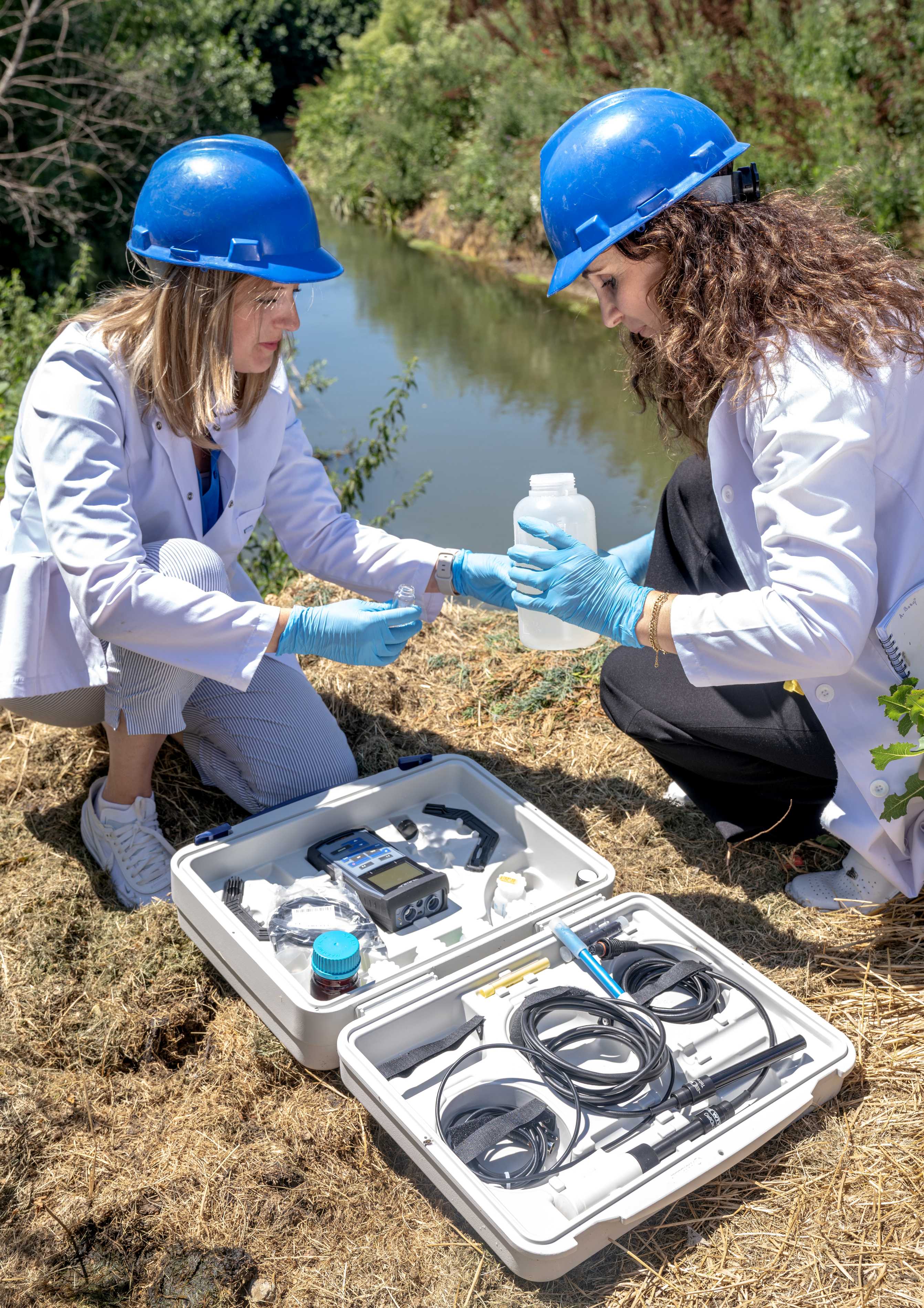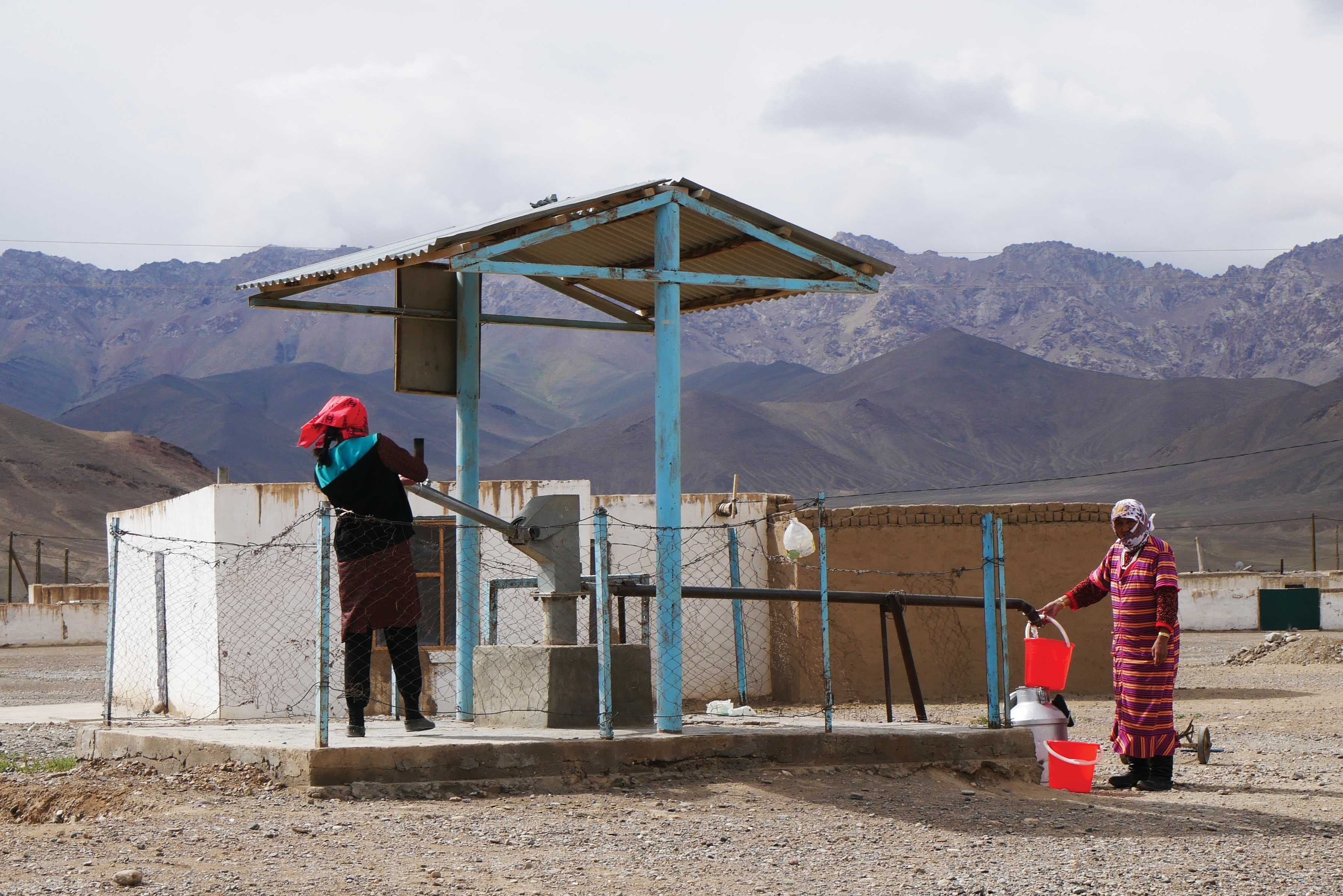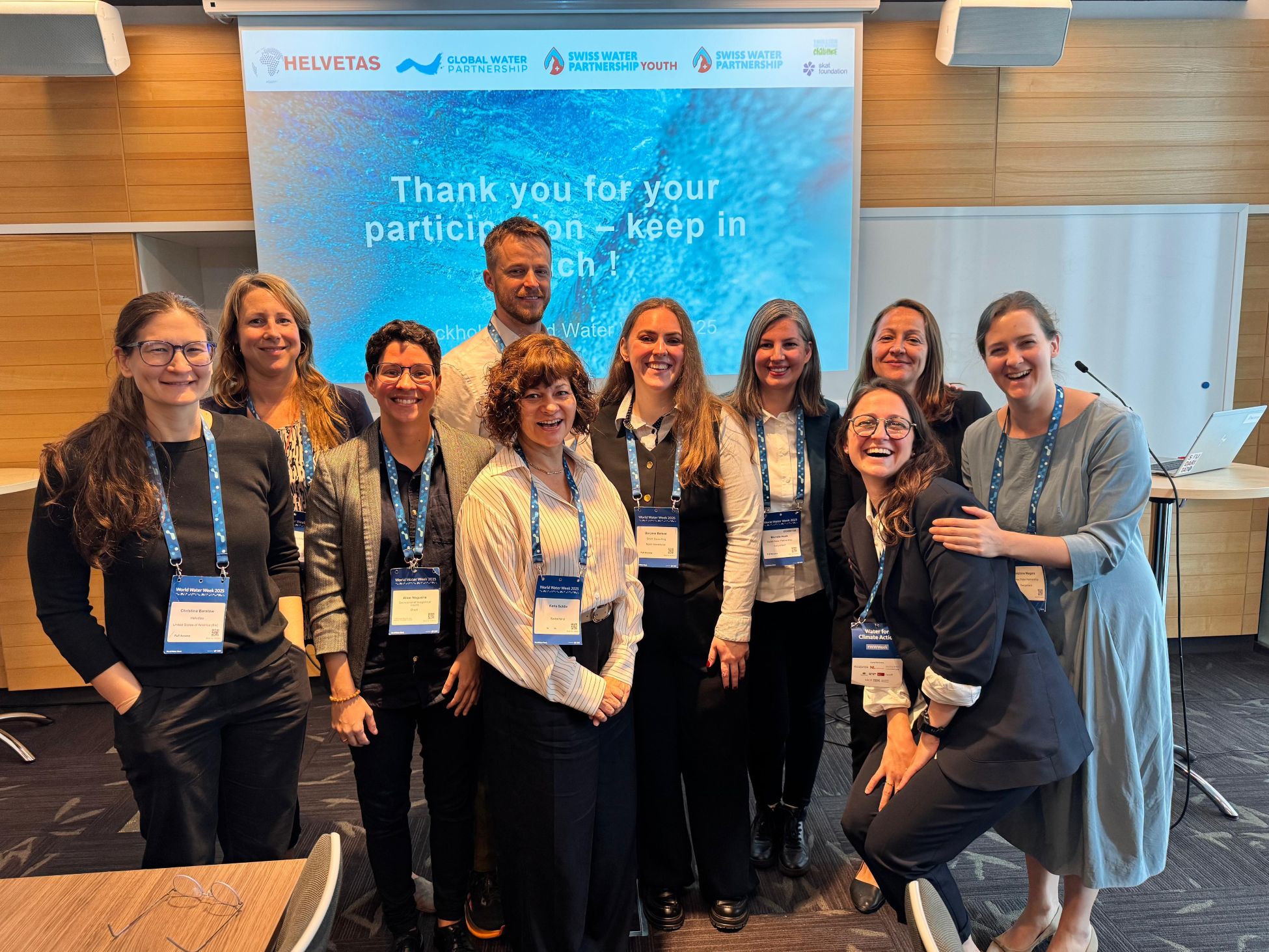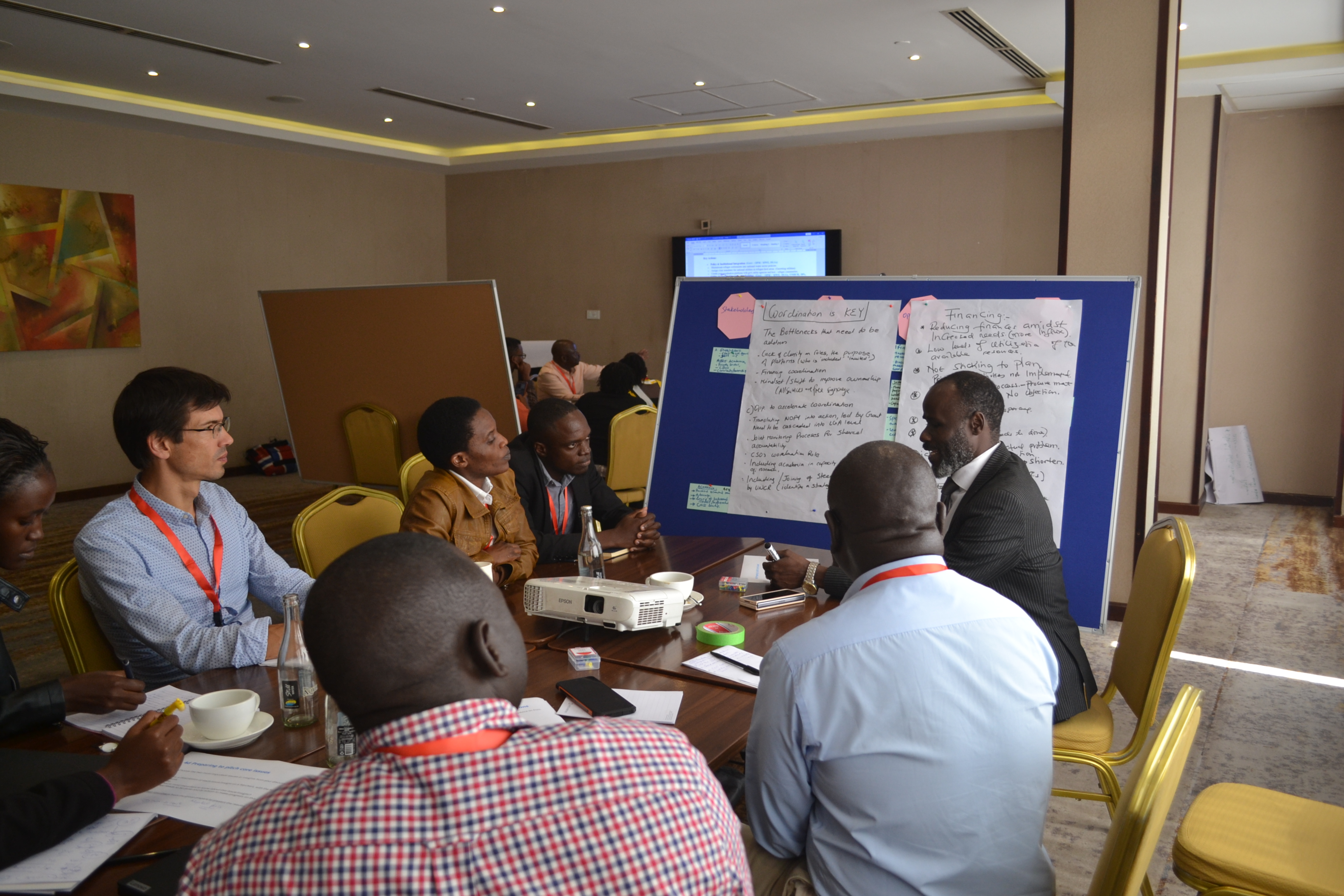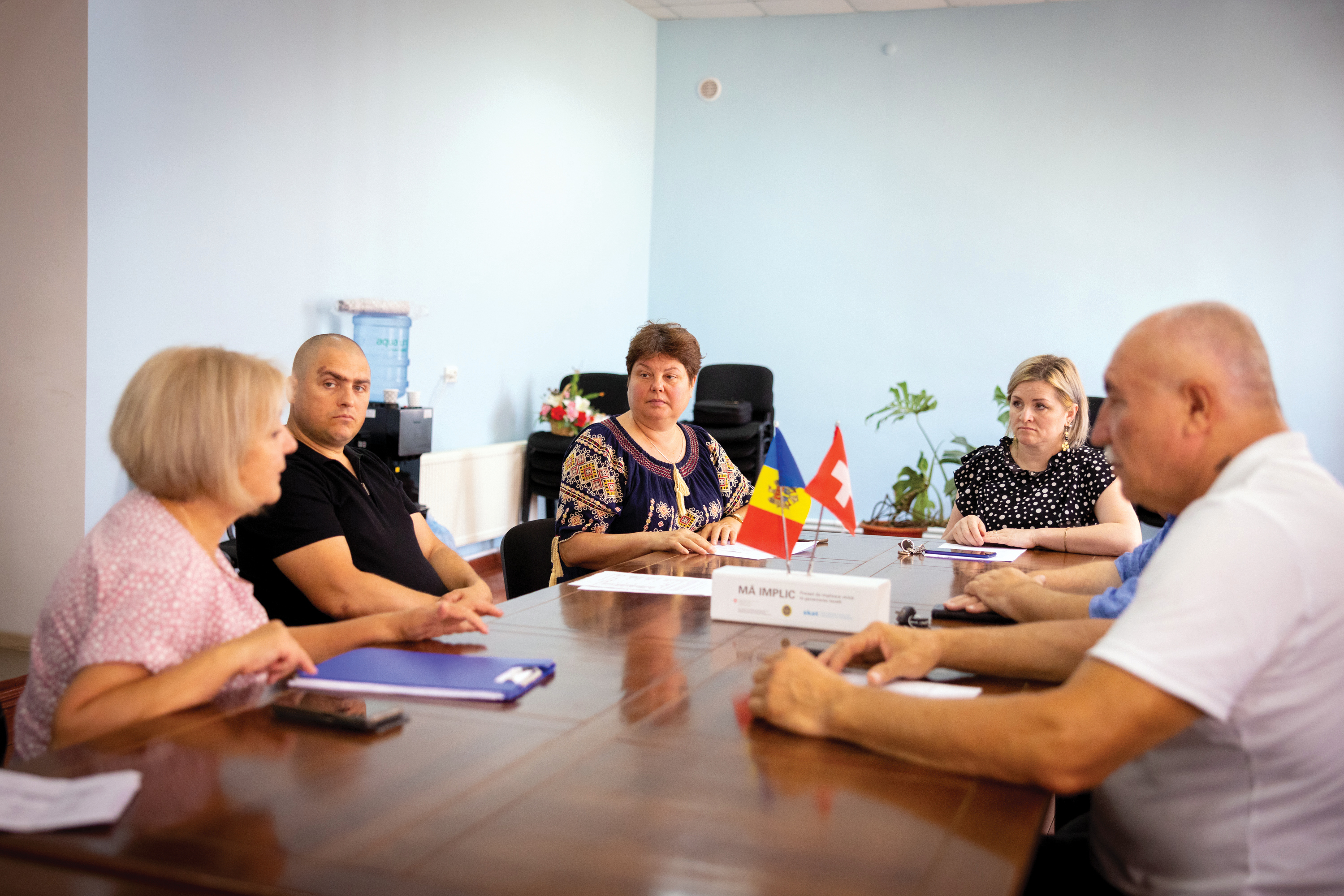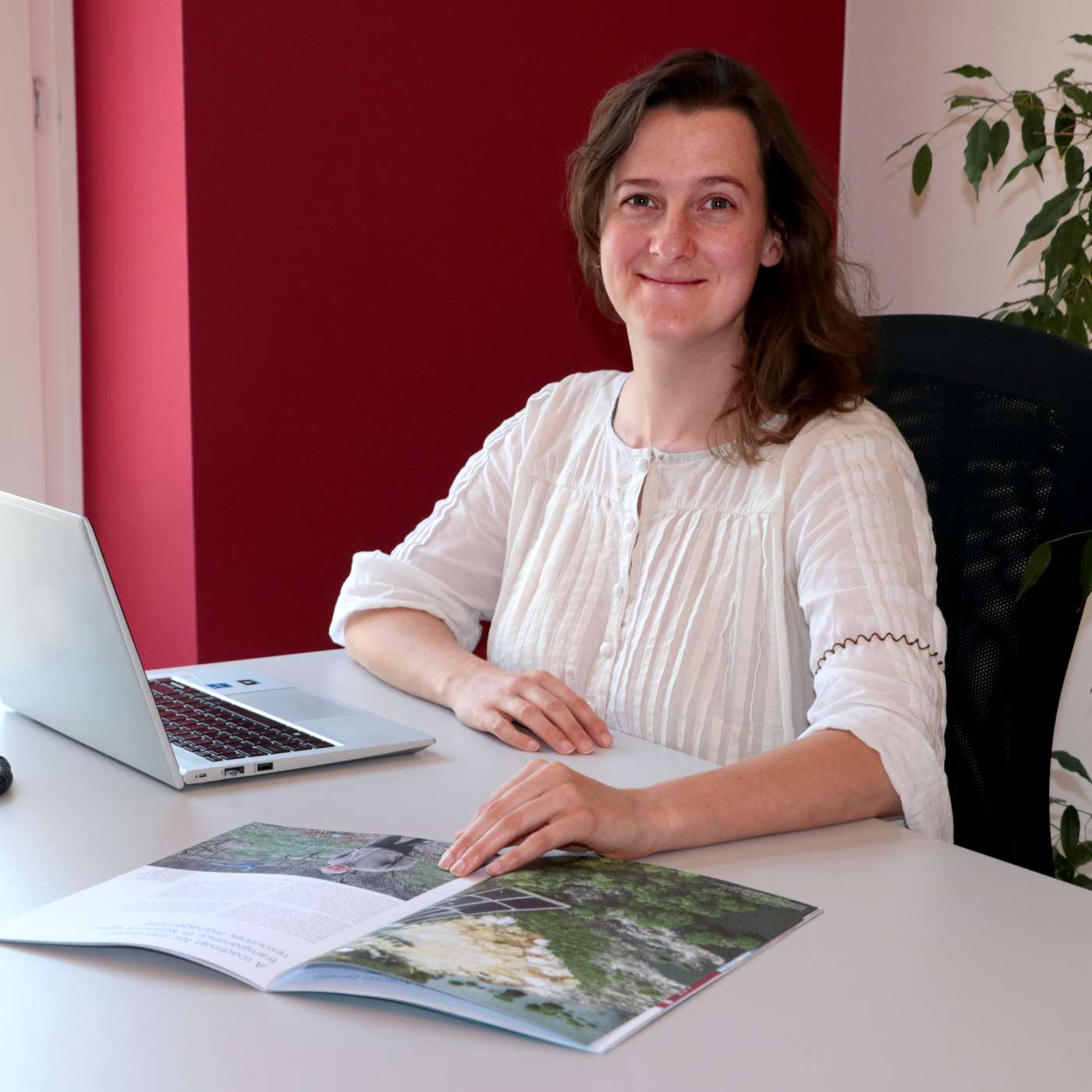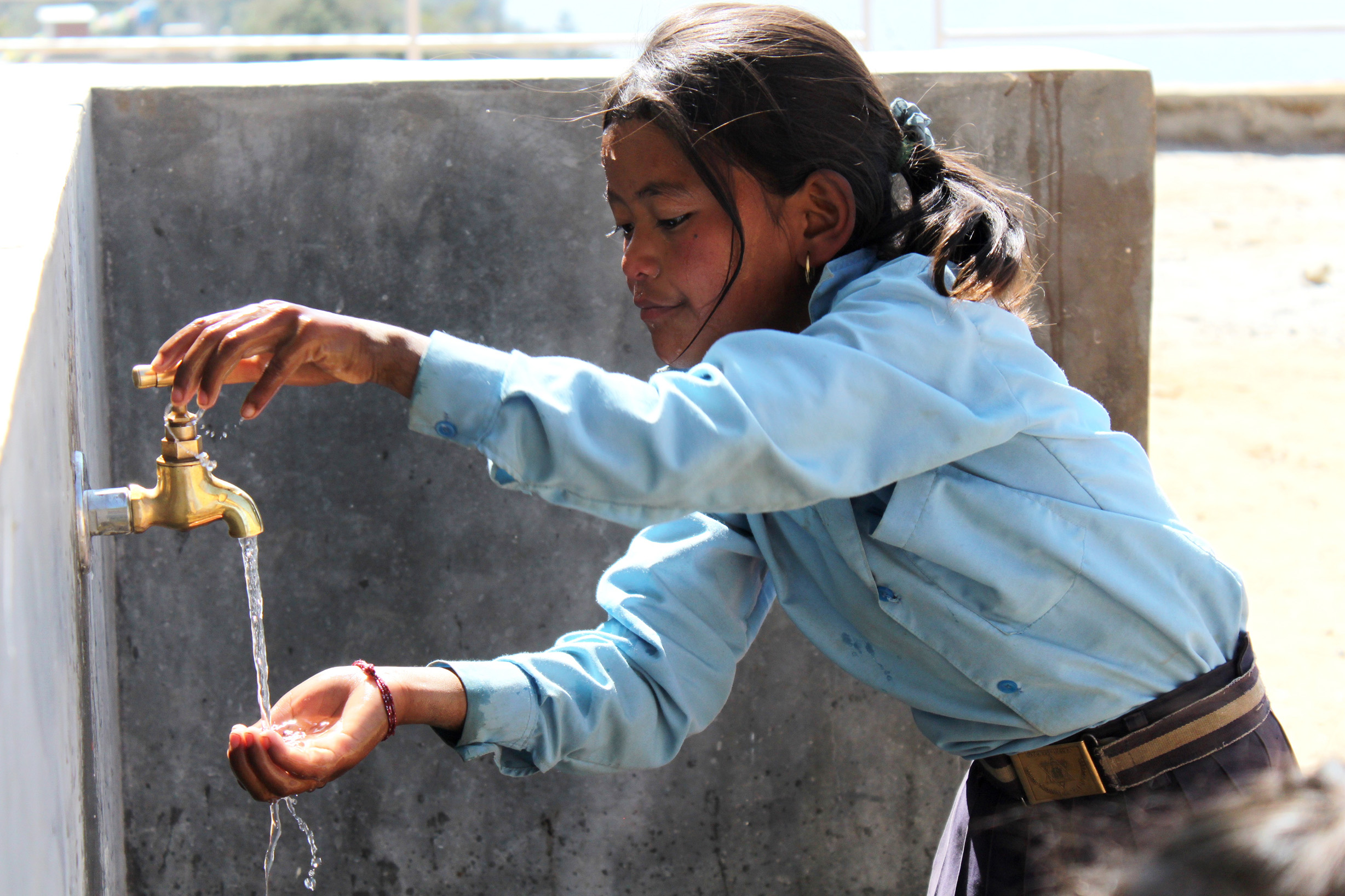
Water & Environmental Services
Water is the foundation of all life, of resilient communities and ecosystems. We design frameworks that are safe, just, adaptive, and future-ready.
Safe water and sanitation are cornerstones of public health, wellbeing, and sustainable development. These essential environmental services enable children to attend school, families to live with dignity, and economies to grow. Yet global water challenges remain immense - gaps in safe access, inequalities in service delivery, pressure from climate change, and the unsustainable management of resources.
To address these challenges SKAT combines technical expertise with a deep understanding of economic, social, environmental, and institutional realities. We translate high-level concepts into tangible results and lasting impact, fostering structural and sustainable transformation.
Our core competencies are in Integrated Water Security, Water, Sanitation & Hygiene (WASH) as well as in multi-level Water Governance.
We use these frameworks to integrate human-centred ideas, approaches, needs, and solutions in ways that amplify their combined impact. This enables us to maximise opportunities, strengthen adaptive capacity and enhance resilience, in order to keep a clear focus on long-term outcomes for both society and the environment.
Core competencies
Integrated Water Security
We believe that working on integrated water security takes the Integrated Water Resources Management (IWRM) approach a step further. IWRM is a holistic approach to managing water, land, and related resources that promotes sustainable development while balancing economic, social, and environmental needs. IWRM recognises that water systems are interconnected and require comprehensive planning across sectors, stakeholders, and boundaries, in order to improve socioeconomic wellbeing, preserve resources, and reduce the risk of water-related conflicts. However, IWRM falls short of acknowledging that water is more than a resource to be used.
Switzerland, as the water tower of Europe, has the responsibility as well as the expertise to enhance and ensure access to quality water for all by highlighting how integrated water security can be achieved through good water governance, sound management, and solidarity. At SKAT we help governments establish water security for humans and nature, working towards overall ecosystem health. We support our partners to put in place functional water security frameworks through capacity building, institutional development, and strategic planning that takes adaptive management into account. We combine technical expertise with a clear vision to design integrated solutions for water management that align with international best practice and EU standards.
We strive for an integrated approach, bringing together climate resilience, circular economy principles, and nature-based solutions. This includes measures across nature conservation, agriculture, industrial operations, and urban development. These are underpinned by robust water monitoring and information systems that strengthen evidence-based decision-making and early warning capabilities for climate-related water risks. Our approach ensures the highest level of technical expertise is combined with community knowledge and local wisdom, crafting solutions that are both lasting and practical.
With our extensive knowledge of state-of-the-art concepts, policies, and approaches, we are able to translate these into tangible results - safe water for everyone in the communities where we work, while securing long-term sustainability and climate resilience for people, ecosystems, and economies alike.
Water, Sanitation & Hygiene (WASH)
WASH encompasses the systems and services that guarantee safe drinking water, adequate sanitation, and good hygiene. These are the foundations of public health, human dignity and sustainable development, but ensuring these requires more than just infrastructure. Effective WASH solutions must reflect local water sources, cultural practices, governance structures, financing models, and the economic realities of both households and service providers.
At SKAT we combine technical expertise in water supply, sanitation infrastructure, groundwater assessment and hygiene promotion with governance and institutional strengthening. We translate global standards and innovative approaches into locally adapted solutions. These range from decentralised sanitation systems and community-managed water supply to sector-wide strategies, multi-stakeholder partnerships, and selected solid waste management initiatives.
Our approach is to use WASH as a framework for integration, linking service delivery with climate resilience, financing innovations, and equity considerations. This enables synergies across sectors and scales, maximising opportunities for impact and ensuring long-term improvements in health, dignity, and sustainability.
Water Governance
Multi-level water governance enables water resources to be managed sustainably through coordination and joint decision-making across multiple scales and levels of government. This approach recognises that water challenges often transcend administrative boundaries and require integrated responses that consider various needs, expectations, and different interests, as well as system boundaries.
The key levels typically include:
Local level – municipalities, water utilities, community organisations, or local watershed groups providing everyday water services, community-based water protection and conservation efforts.
Regional level – river basin organisations, or regional authorities coordinating across multiple localities, managing interstate water allocation, or overseeing regional water quality standards.
National level – national government agencies and entities that set national water policies, environmental regulations, funding priorities, and interstate coordination mechanisms.
International level – treaties, agreements, directives and institutions governing transboundary waters.
At SKAT we consider multi-level water governance throughout all our interventions. It is particularly important for addressing complex water challenges like climate change adaptation, where local impacts require coordinated responses across many levels. This allows us to coordinate between different jurisdictions, balancing various economic and social interests by catering to the needs of stakeholders at different levels, for example the just sharing and equal distribution of water resources, or ensuring that upstream actions consider downstream impacts. It helps us balance competing demands for water between e.g. urban-rural, agricultural-industrial, or environmental-economic uses by bringing different stakeholders into dialogue, cooperation and collaboration. Our work helps to align policies and regulations on all levels to avoid conflicts and inefficiencies. Our approach also facilitates resource sharing, allowing technical expertise and financial resources to flow where they are needed most.
Water & Environmental Services
SKAT offers tailored and reliable services to organisations working in international cooperation – government agencies, foundations, NGOs and impact investors – as well as to associations and companies in Switzerland who benefit from our international expertise and global perspective.
SKAT offers its water-related expertise through project implementation, consultancy, and facilitation & knowledge sharing.

